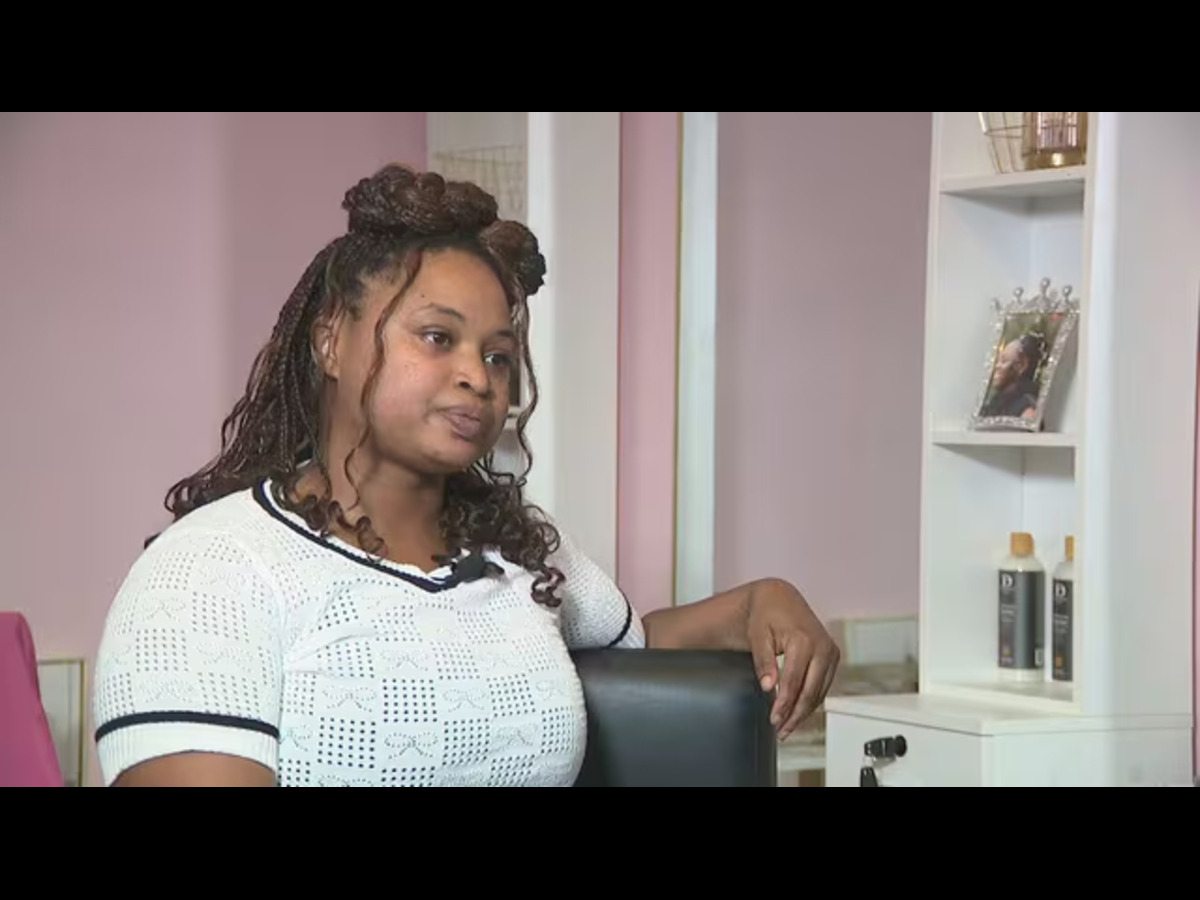Khalilah Few founded her salon, Creative Crowns Collective, in 2023; however, two years later, she is involved in a court dispute with Clayton County, Georgia.
It started when Few outgrew her first studio space. In March, she obtained a two-year lease to open a new salon in an old barbershop in Jonesboro, Clayton County.
After spending more than $30,000 upgrading the premises, she applied for a Conditional Use Permit (CUP) in April to operate her salon. Few’s application was rejected in July by the Clayton County Zoning Advisory Board and the Board of Commissioners, even though it complied with all legal requirements for a permit.
Instead of referencing the law, county authorities cited a “saturation” of similar businesses within a 5-mile radius, claiming the salon would not “grow Clayton County smartly.”
Although Few’s plan “does align” with the county’s economic development plan, Commissioner DeMont Davis, whose fourth district contains the new salon location, voted against it, claiming that Few’s company was “just in the wrong area.”
READ ALSO: How a canceled GloRilla concert triggered a $2.5 million lawsuit over forged documents
Few has since sued Clayton County, arguing that the Due Process and Equal Protection clauses of the Georgia Constitution have been violated.
Her lawyer, Jessica Bigbie of the Institute for Justice (I.J.), told Reason that “nothing in the ordinance or the law says anything about smart growth being a basis to deny a permit.”
Few claimed that county employees’ answers to questions concerning the requirements and grounds for denial were “vague” throughout the procedure. She informed Reason that she first learned of “oversaturation” during her meeting with the zoning advisory board.
“What’s frustrating and infuriating about this process is I asked questions, I directly asked, ‘What are some reasons that this application can be denied?'” Few said.
According to Reason, Few’s problems began in 2024, when Clayton County altered its municipal code and designated District 4, where the proposed salon is located, as a General Business Zoning District with a Business Corridor Overlay District.
This overlay requires a CUP for some businesses while allowing others to open without one. While hair salons usually need a CUP, personal service businesses like dry cleaners and watch repair shops usually don’t.
The county’s CUP requirements for District 4 look arbitrary, treating similar firms differently. While gyms and places of worship are subject to restrictions, childcare centers and dance/music schools are allowed. Even potentially hazardous businesses, such as research labs, are authorized, which seems counterintuitive, according to Reason.
To get a CUP, applicants must first meet with the Technical Review Committee, community residents, and the Zoning Advisory Group, followed by a final hearing before the County Board.
The board considers the application’s proper filing, the Zoning Advisory Group’s recommendation, compliance with permit conditions, and consistency with the ordinance’s purpose and intent.
They can also balance the benefits against potential property or county damage and apply reasonable conditions to protect public health, safety, and welfare.
Few’s salon satisfied the requirements for the permit, and she presented her application and a presentation to the commissioners and county officials, explaining how she aligned with Davis’ declared economic priorities and the county’s 2039 comprehensive development plan.
“I think you have a fabulous business,” the commissioner said. “You have a fabulous personality, and I love what you bring, and you actually hurt my heart right now, but we’ve got to deny,” he added.
“The Board of Commissioners concedes that the salon fits the plan; it’s a good business, she’s doing the right thing, she is just not doing it where they want her to do it,” said Bigbie. “The government shouldn’t be stopping legitimate businesses from opening to stop them from competing with others.”
Clayton County officials have refused a CUP to several other potential salon owners since the 2024 ordinance was passed. Lea Bakam, the owner of LeNa Braiding, told Reason that she was rejected a CUP on June 17 after spending “more than $35,000” to renovate a salon in Clayton County.
Bakam, like Few, provided the board of commissioners with a business plan and letters of support. However, in denying the application, Davis again stated that the neighborhood was “extremely saturated with salons.”
Meanwhile, Few has filed for an interlocutory injunction to allow her to continue working while her court case is pending. Clayton County must answer the lawsuit by September 18.
READ ALSO: Lawsuit accusing Ja Morant of punching teen dismissed by judge










